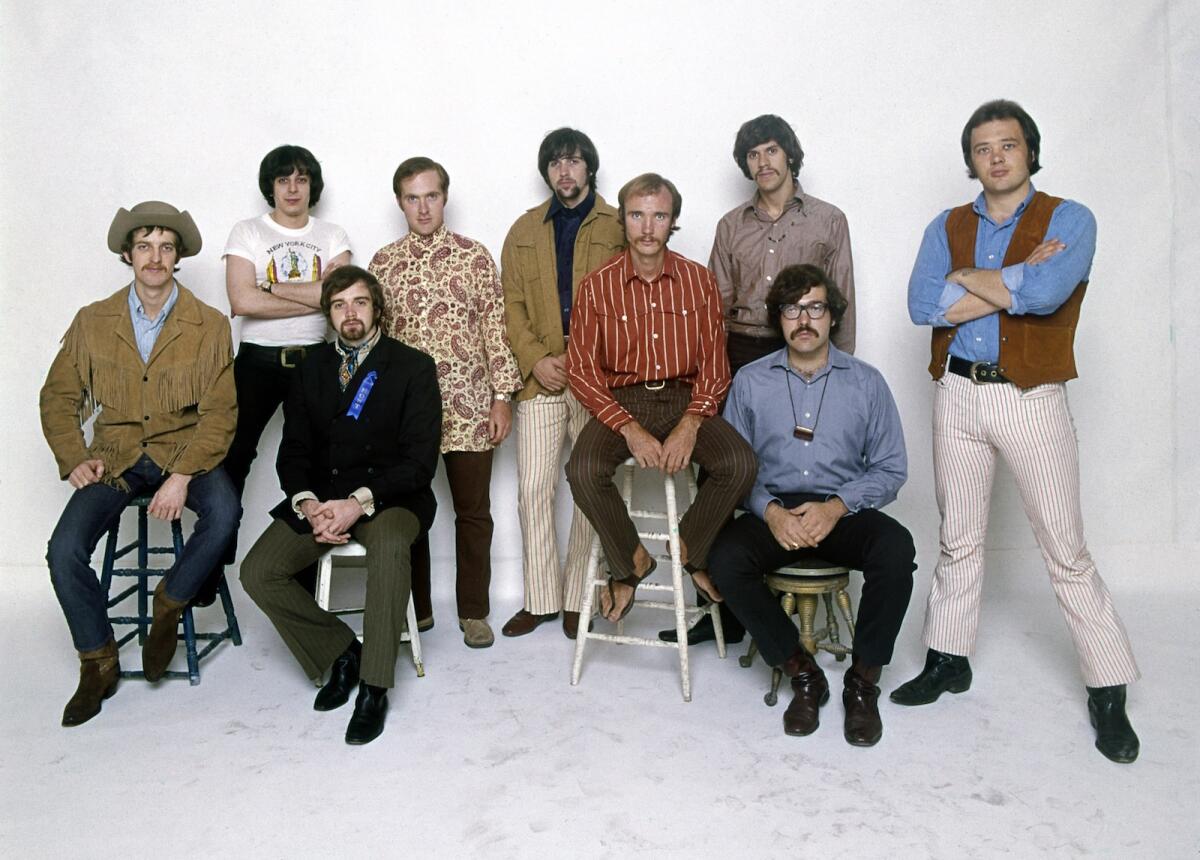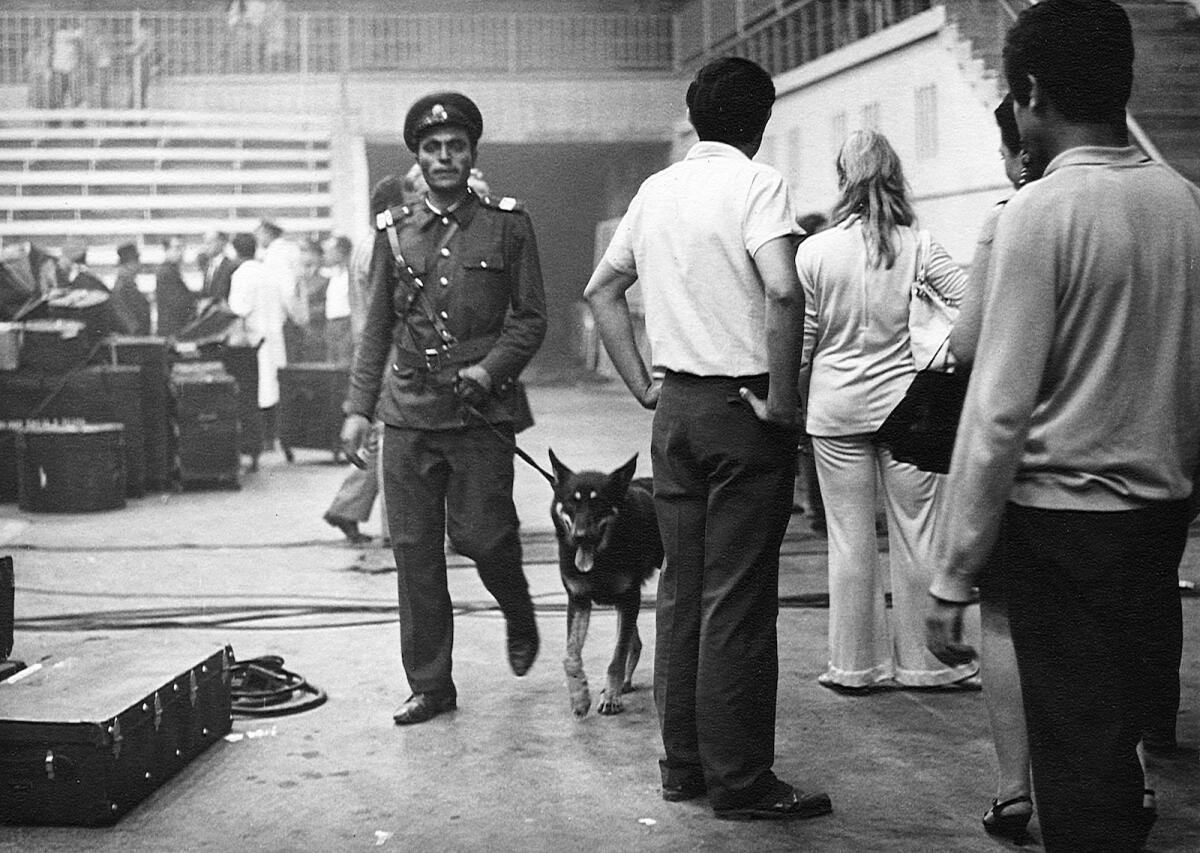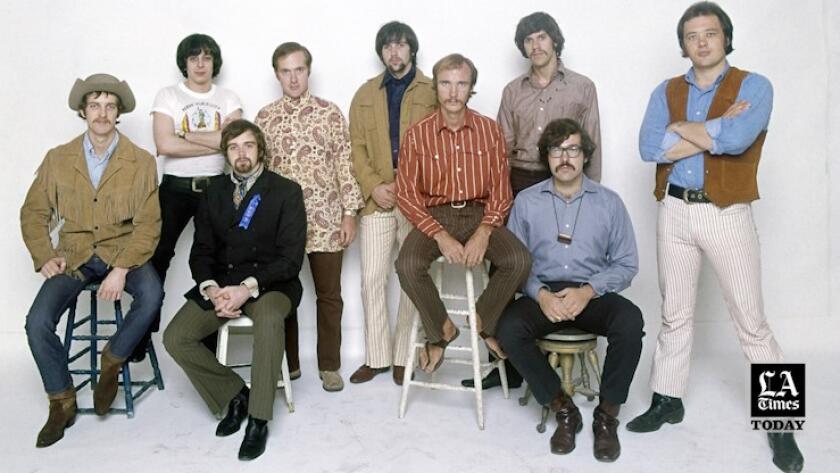Review: ‘What the Hell Happened to Blood, Sweat & Tears?’ is an unanswerable question

- Share via
At the outset of the 1970s, Blood, Sweat & Tears were riding high with an enviable succession of million-selling singles (“You Made Me So Very Happy,” “Spinning Wheel,” “And When I Die”) pulled from the same eponymous album that would go on to nab the Grammy expected to be taken by the Beatles’ “Abbey Road.”
But the horns-heavy jazz-rock outfit, fronted by soulful power vocalist David Clayton-Thomas (who had replaced founding lead singer Al Kooper) were about to find themselves caught in a politically charged crossfire that would ultimately contribute to their abbreviated reign atop the charts.
At least, that’s the contention behind John Scheinfeld’s “What the Hell Happened to Blood, Sweat & Tears?” a now-it-can-be-told exposé chronicling the band’s 1970 U.S. State Department-sponsored gig behind the Iron Curtain.
Equal parts international intrigue, concert film and VH1-style “Behind the Music” cautionary tale, the documentary raises some interesting if ultimately unanswerable questions as it compellingly inhabits its very specific place in time.
When it was first announced that BS&T would be playing the former Yugoslavia, Romania and Poland as part of an international cultural exchange program that had historically been reserved for American classical and jazz artists, both sides of the political aisle deemed the mini-tour a sellout — and not in the respected sense.
While the right was unhappy with the U.S. government footing the bill for a band that hadn’t exactly shied from voicing antiwar sentiments, the left-leaning underground press accused the musicians of being shills for the Nixon administration.
What the band members were unable to say at the time was that they were essentially being blackmailed.
Brokered by the band’s manager in a bid to prevent Clayton-Thomas, a Canadian with a criminal record thanks to a juvenile delinquent past, from having his green card revoked, the goodwill tour, to be captured by a documentary crew, was put into quid-pro-quo motion.

Upon their return home, Blood, Sweat & Tears were lambasted by the American press and subsequently by Yippie leader Abbie Hoffman, who led a protest outside their stint at Madison Square Garden.
A year or so later, their whiplash ride on the spinning wheel would virtually come to a crashing halt.
Combining interviews with the band’s surviving members Clayton-Thomas, Bobby Colomby and Steve Katz and a recently discovered, never-aired 53-minute special intended for syndicated television (the only surviving footage from the 65 hours shot behind the Iron Curtain), Scheinfeld (“The U.S. vs. John Lennon”) pieces together an evocative time capsule.
Somewhat less convincing is the film’s implication that the contentious tour ultimately led to the group’s demise.
After all, it wasn’t the first time Blood, Sweat & Tears drew the ire of the counterculture, having played Caesars Palace in 1969, back when Las Vegas was considered anything but anti-establishment.
Plus there’s that inescapable clash of egos that would have been tricky to sustain in a nine-member outfit, particularly when its signature sound was being successfully imitated by the likes of Chicago.
And although Clayton-Thomas, now 81, expresses remorse over his immigration status putting the group in a tenuous position, who’s to say if they had refused the gig and he was deported back to Toronto that a new lead singer would have taken the band to similar heights?
No matter the implications, as Donn Cambern, director of that ill-fated concert documentary, succinctly puts it, “they really got screwed.”
‘What the Hell Happened to Blood, Sweat & Tears?’
Not rated
Running time: 1 hour, 51 minutes
Playing: Laemmle Monica, Santa Monica
- Share via
Watch L.A. Times Today at 7 p.m. on Spectrum News 1 on Channel 1 or live stream on the Spectrum News App. Palos Verdes Peninsula and Orange County viewers can watch on Cox Systems on channel 99.
More to Read
Only good movies
Get the Indie Focus newsletter, Mark Olsen's weekly guide to the world of cinema.
You may occasionally receive promotional content from the Los Angeles Times.











